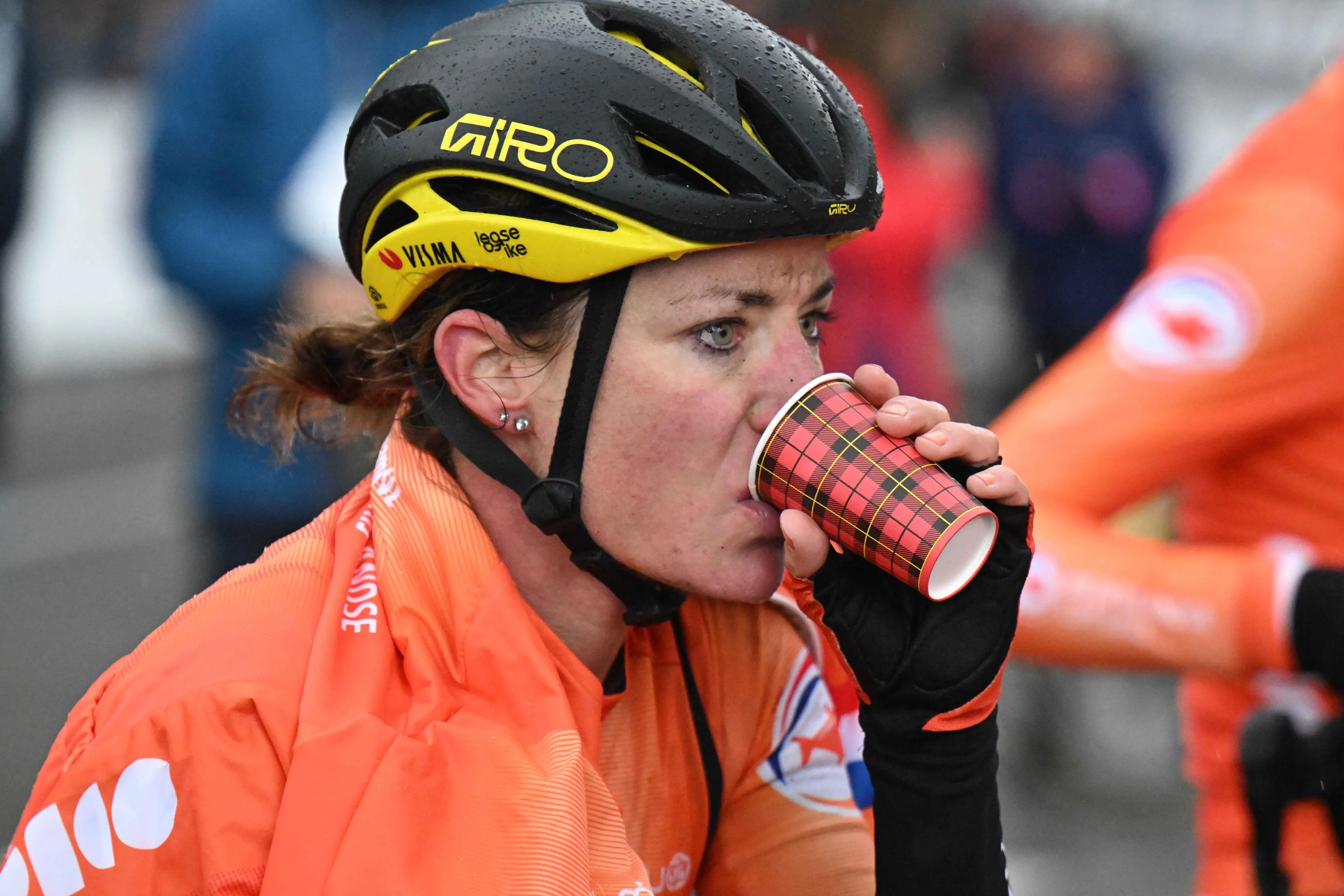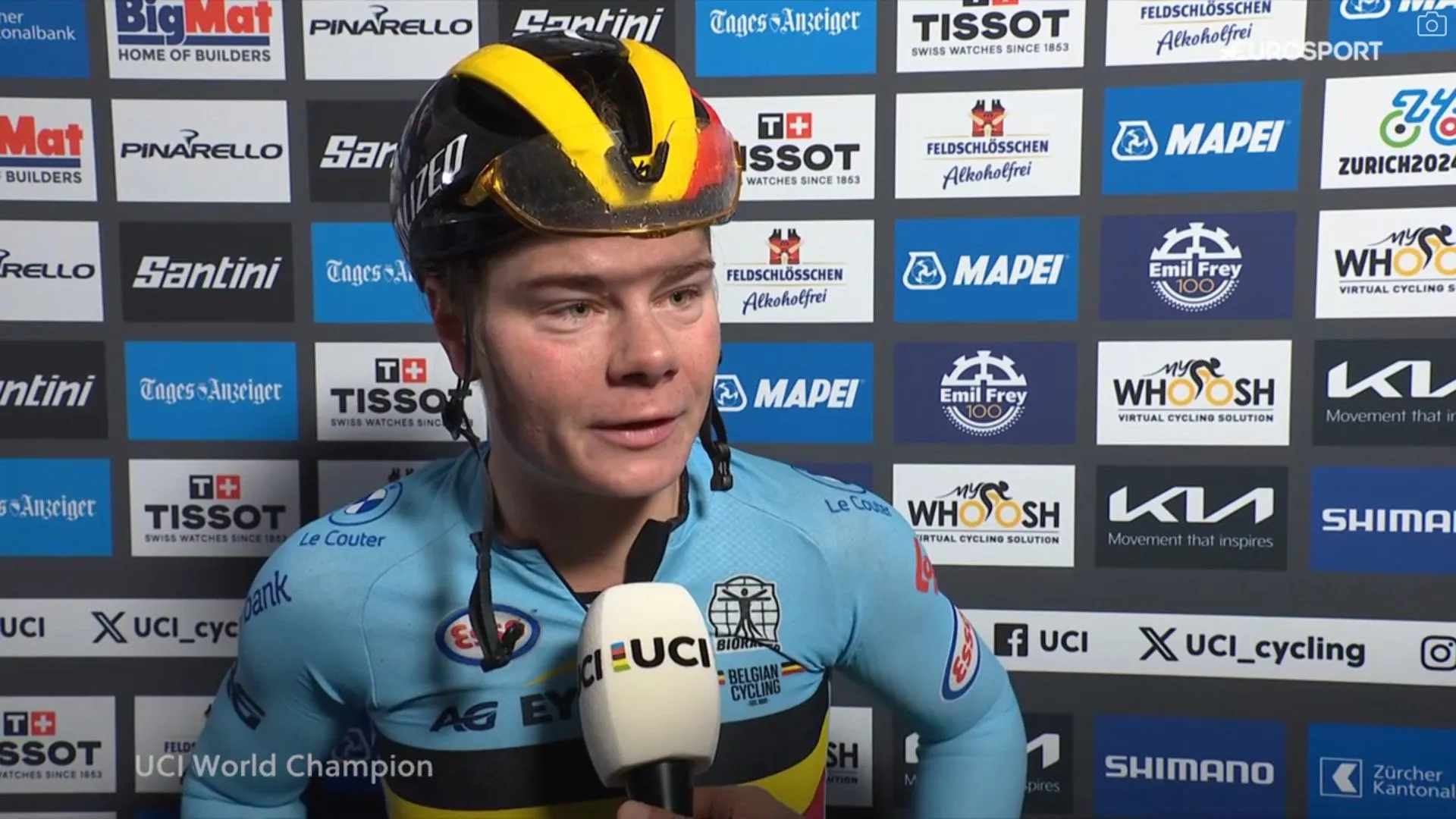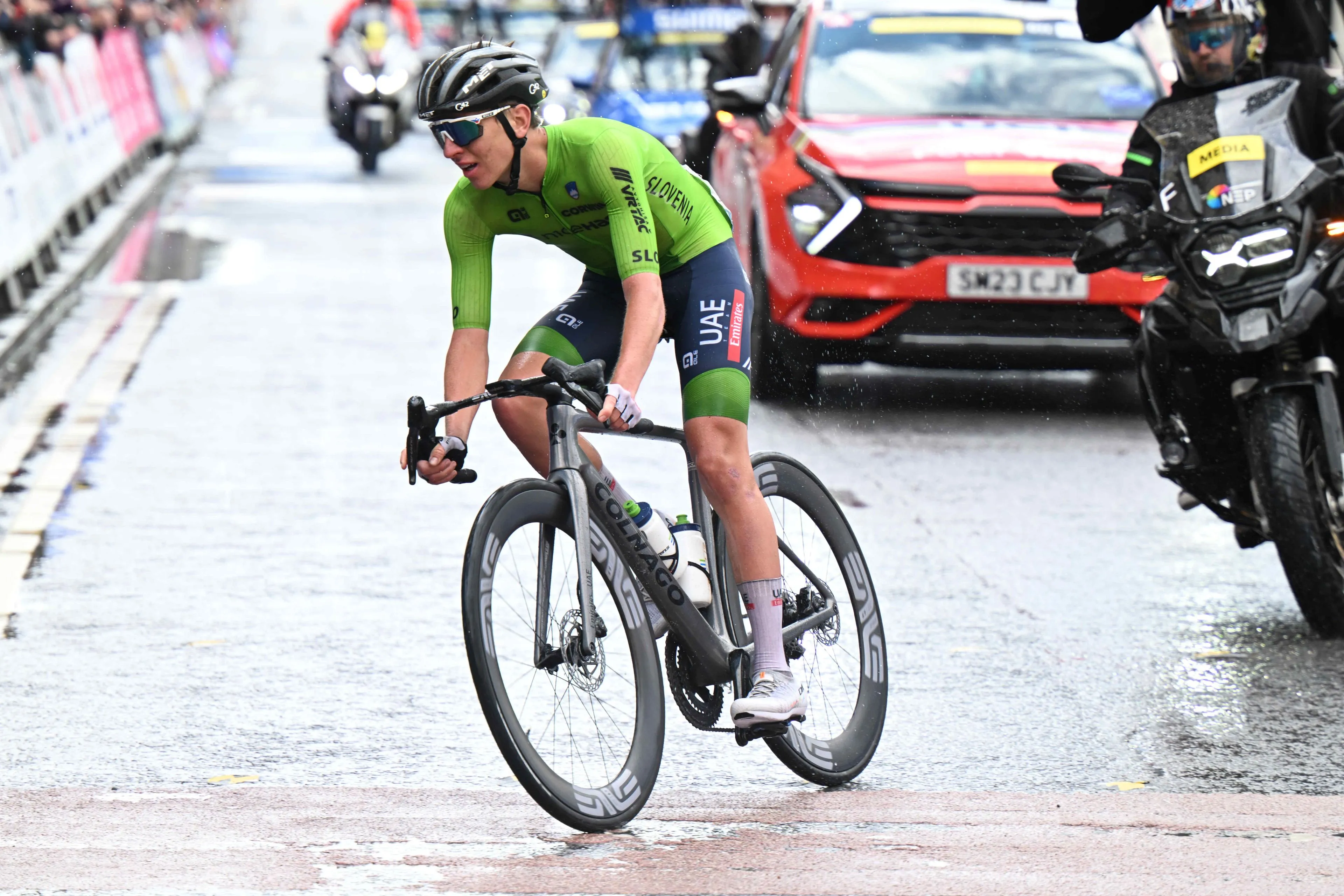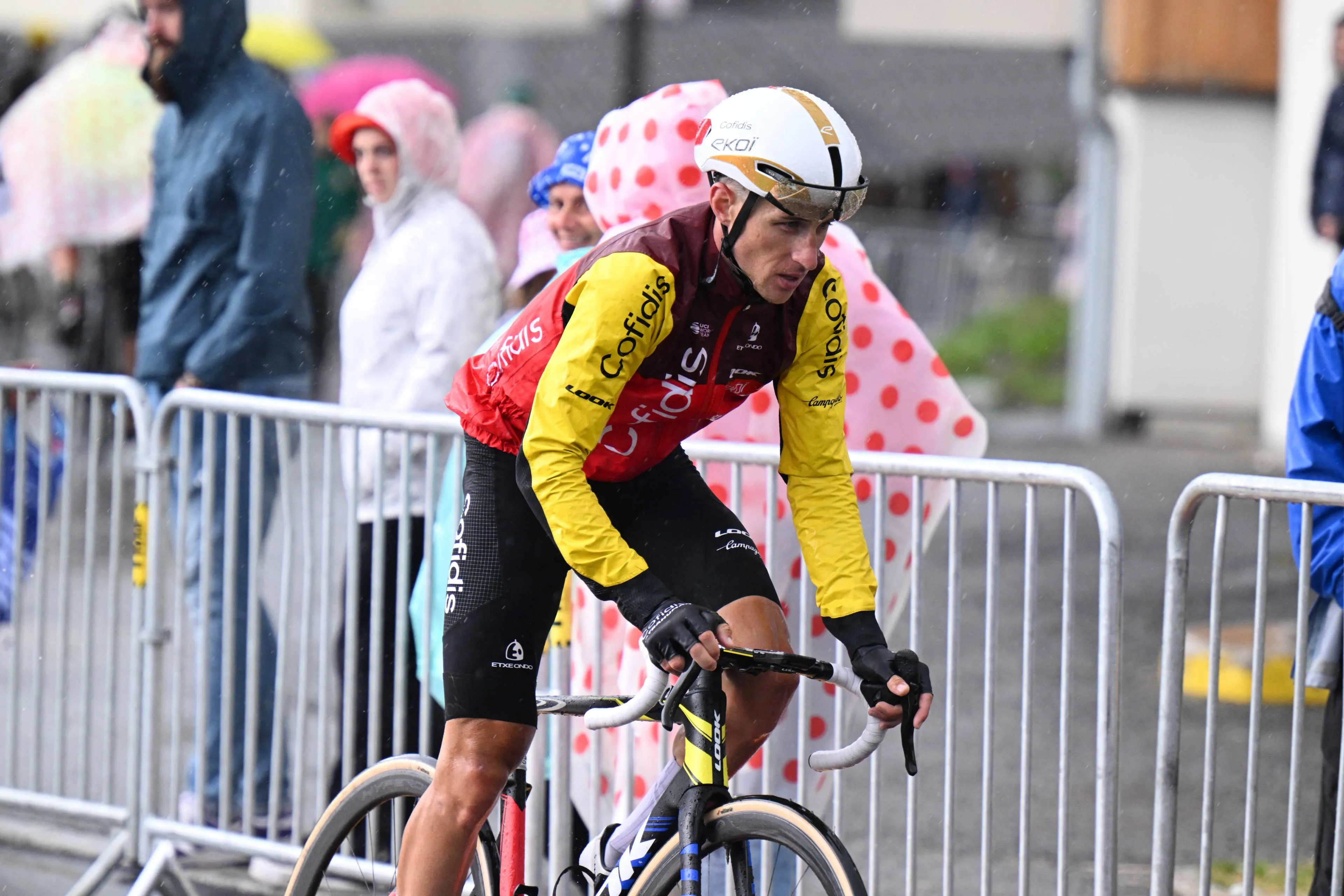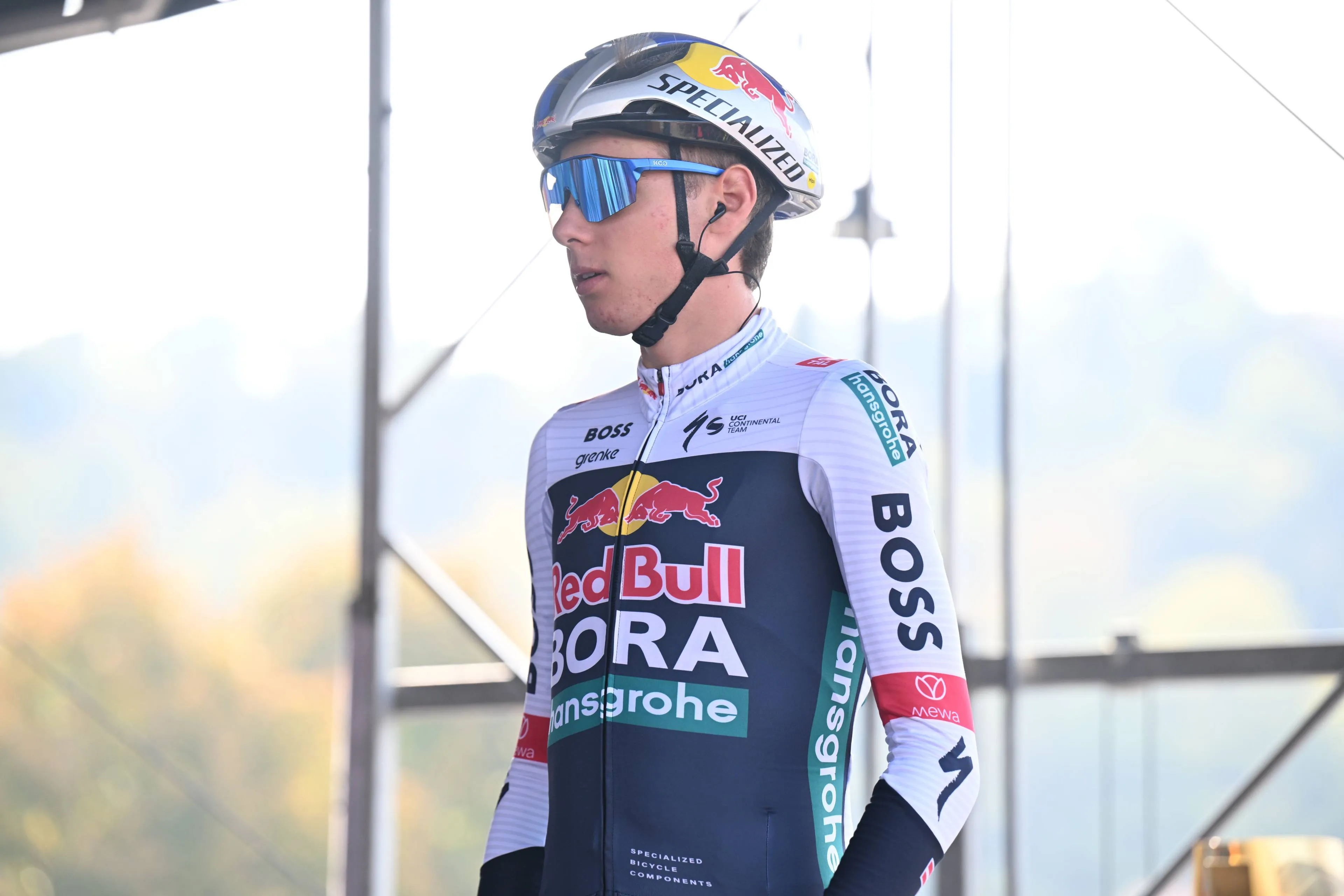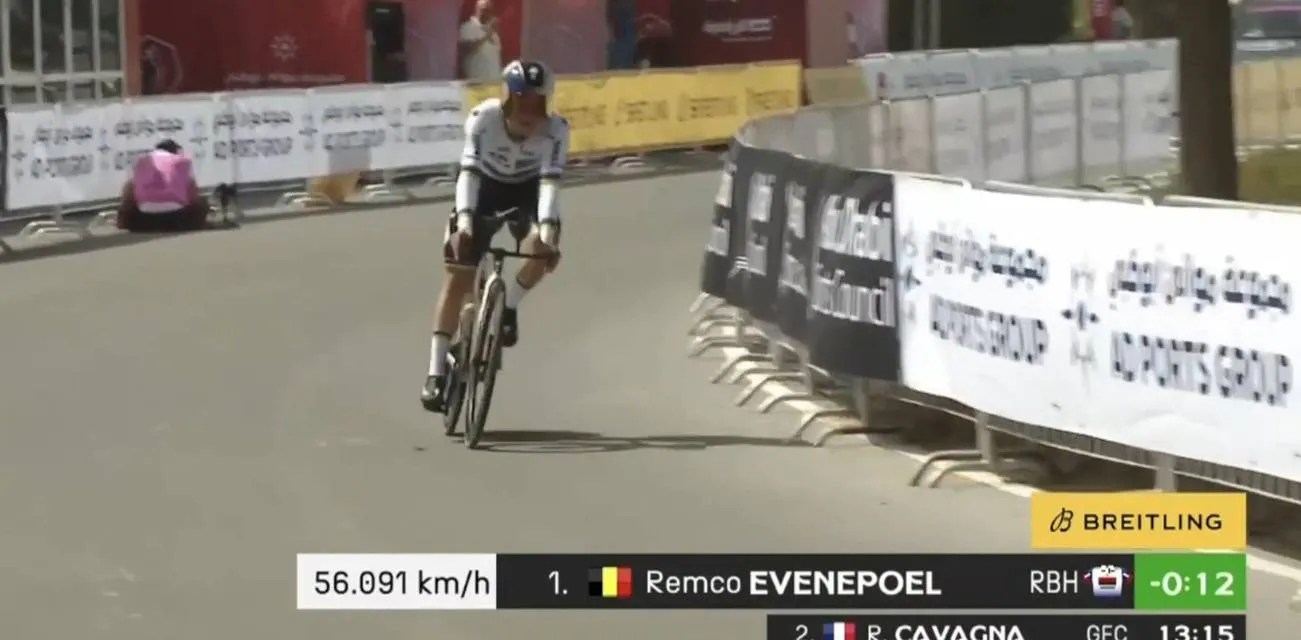"You are not on a bike to die" - David Lappartient tackles hard questions as UCI falls under criticism over Muriel Furrer's death
CyclingSaturday, 28 September 2024 at 21:00

The World Championships in Zurich have been marred by the
tragic passing of Swiss Junior rider Muriel Furrer, who died following injuries
sustained during a crash in the junior road race on Thursday. The 18-year-old
passed away on Friday, leaving the cycling world in deep shock and sorrow.
UCI President David Lappartient addressed the sensitive
matter in an interview with In De Leiderstrui, sharing his grief and
reflecting on the impact of Furrer’s death.
“I feel very bad about it. When we organize a World
Championship, it is the pinnacle of the cycling season. Also for the juniors,
who are getting to know the World Championship for the first time. They are
discovering the national team or a new country, which was not the case for
Muriel. Muriel was an
ambassador for this World Championship, so that makes it all very sad. You are
not on a bike to die,” Lappartient said.
Read also
The UCI had planned several events to celebrate the
championships, but Lappartient confirmed that the UCI Gala would no longer take
place, stating, “If we organize a World Championship, we want to bring people
together for cycling. Of course, such an accident has an impact, also on us as
the UCI. We are now investigating the accident with all parties that can
contribute, but it should be clear that there is no time for festivities such
as the UCI gala. That is why we are not going ahead with it.”
Lappartient was questioned about whether Furrer’s tragic
accident could lead to a review of the UCI’s policy banning radio
communications in junior races. However, he was quick to point out that any
conclusions at this stage would be premature.
“First of all, we don't know exactly what happened. The
police are working hard to map out the circumstances of the fall, so we can't
draw any conclusions about that at this time. That's why I don't want this fall
to be used as an example for such conclusions, it's really too early for that
now. We have to wait for the police investigation.”
Read also
Despite the incident, the decision has been made to continue
with the World Championships, which has been supported by Furrer’s family.
Lappartient added, “Through Swiss Cycling we have of course shared our
condolences with Furrer's family in these difficult times. They support the
decision to continue the World Championships in this way.”
The tragic loss of Muriel Furrer is the second death to hit
Swiss cycling in just over a year, following the passing of Gino Mäder during
the Tour de Suisse in 2023. These fatalities have intensified the debate around
the safety of cycling, both in competition and in training.
“We're not in a football stadium, but the sport is played on
public roads. Most crashes happen during training, but the crashes in
competitions are of course more memorable. As a parent you're afraid to let
your child ride a bike, so that's why it's important that more and more is
invested in good cycle paths and the like. That's going in the right
direction,” Lappartient noted.
Read also
He acknowledged that while significant strides have been
made to improve rider safety, there are still challenges, particularly in urban
areas. “Gino's crash was very tragic, but sometimes we don't know exactly what
can happen. In his case, the roads were good, without any critical points.
Safety has already improved, but there is still room for improvement. The
difficult thing is that there is more and more traffic furniture, especially
around big cities. That is meant to slow down cars, but in a peloton at high
speed that is also difficult. If you lose concentration for a moment, you end
up on the ground. So safety is not easy, but that is precisely why we want to
work together with all stakeholders for a safer sport.”
The cycling world now faces the difficult task of continuing
the competition in Zurich under the shadow of this tragedy. Muriel Furrer’s
death has left a profound impact on the sport, and questions about safety will
undoubtedly persist long after the 2024 World Championships conclude.
claps 1visitors 1
Just in
Popular news
Latest comments
- Completly agree, Jan was in front of van gils, following Pidcock wheel, it was Van gils who tried to force his way through Jan and the barriers. Are they blaming Jan because he belongs to the richest team that win a lot?
 maria2024202418-02-2026
maria2024202418-02-2026 - Clickbait title, not reality-based. Yawn.itsent18-02-2026
- lame, but probably correctantipodeanpedalfan18-02-2026
- Van Gils rode like wanted to get crashed or way too over confident that he was going to overtake Jan before getting pinched. It was obvious were Jan was going/had to go and MVG had the whole road to give an inch so he would have a chance to overtake on the rightjad2918-02-2026
- Double book this showing with the Melania documentary and you might get 100 people to see it...total !frieders318-02-2026
- Simple solution...stay off the barriers since you might get closed out ! Christen's sprint was legal as he was trying to get into the slipstream of Pidcock.frieders318-02-2026
- I believe Remco now understands that he will have issues reaching the top step as long as Tadej is in the Tour, whiles he's a year junior to Tadej he has had his upper body rebuilt twice now from crashes over the last few years. I think he has a chance to win the Tour in a few more seasons, you can only prepare yourself as best you can and try. He said he needs to race some more one week stage races, he should, he can probably win them all. I also believe Remco should aim for another Vuelta if he comes out of the Tour in good form and maybe he should think about the Giro again for next season. This is potentially Tadej's fifth Tour win coming up this year, no one is going to derail that unless he falls off the bike or gets really sick.awp17-02-2026
- Not only will the great narcissist get his voice, but he'll benefit financially from this as well. Who says that cheating and lying your way to victory doesn't pay?
 santiagobenites17-02-2026
santiagobenites17-02-2026 - It'll make a good double feature with the Michael Jackson soft focus biopic.LumbarDeniro17-02-2026
- Yeah, whilst MVDP would never break a bone on the MTB... 😂Sexass17-02-2026
Loading
1 Comments
